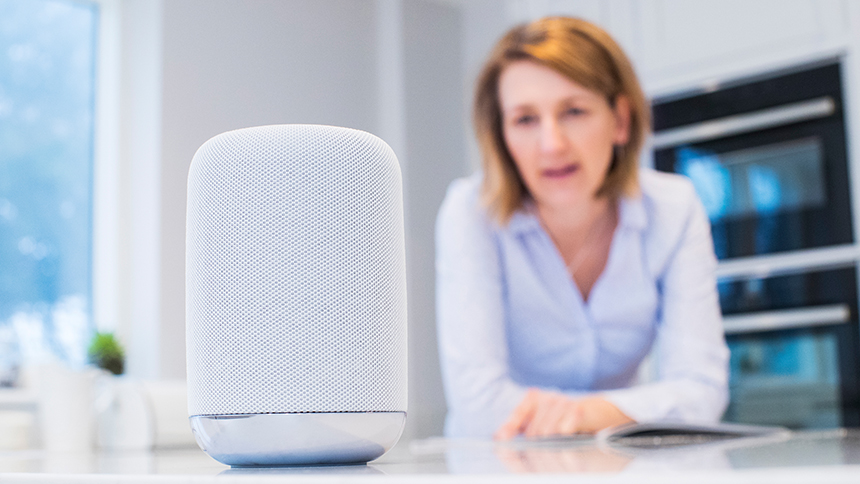Can Amazon Alexa or Echo help my step-dad with dementia?
Our Ask an expert column looks at whether virtual assistants, such as Amazon Alexa or Echo, can help support people living with dementia.

'My step-dad has dementia and now struggles to play CDs or use the TV. Could voice-operated technology, such as Amazon Echo and Alexa, help?'
Devices that allow people to use technology in their home by speaking instructions or asking questions aloud are increasingly popular.
You can use your voice to operate ‘smart’ devices like Amazon Echo, Google Home and Apple HomePod. These access online ‘virtual assistants’, such as Amazon’s Alexa, Google Assistant and Apple’s Siri, so you can play music or control the TV, lights and much more. You need additional equipment, such as smart lightbulbs, to do some of these things.
This technology could help many people with dementia, though it’s important to think about whether it’s right for your step-dad’s specific situation.
Assistive technology and dementia
Find out what the benefits and difficulties of assistive technology are for a person with dementia.
Considerations
Your step-dad would need to consent to having these devices set up in his home. If he isn’t able to make this decision, and if an attorney or deputy hasn’t been appointed, then a best interests decision needs to be made on his behalf – discuss this with his care professionals.
In order to use a voice-operated device, the person needs to recall that it’s there and that they need to use a ‘wake word’ – such as ‘OK Google’ or ‘Alexa…’ – when talking to it. Written instructions beside the device could help, as could placing it where your step-dad would use it, for example where he’d expect a CD player to be.
These devices are always on and ready to respond whenever the ‘wake word’ is used. Some people have concerns about what information they record, how long this is stored and who can access it.
Potential
An advantage of this kind of device is that you can add new functions. You could program it to remind your step-dad about appointments or when to take medication, or even to introduce itself and say how to use it.
It may also be used to make phone calls, and if your step-dad has a personal alarm service, he could use it to call them too.
If he gets a ‘smart home’ system as well, you could connect this so your step-dad can adjust heating and other systems by speaking.
When someone asks a virtual assistant repetitive questions, it responds without annoyance or stress creeping into its voice.
Although this kind of device could never be a substitute for human contact, it may provide entertainment and help while family or friends aren’t around.

